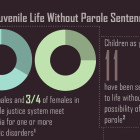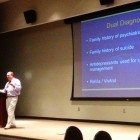
Rutgers Webcam Spying Case a Hate Crime, Jurors Conclude
|
A former Rutgers University student was found guilty Friday on all 15 charges he faced for using a webcam to spy on his college roommate having sex with another man. Charges included invasion of privacy and bias intimidation. Dharun Ravi, now 20, invited friends through text messages and Twitter encouraging them to view the webcam. Three days after the incident, his roommate, Tyler Clementi, jumped to his death from the George Washington Bridge. Ravi’s attorneys did not dispute the facts of the case, according to The New York Times, agreeing that he had indeed set up a webcam on his computer and went to a friend’s room where he saw Clementi kissing a man he had met on the Internet.








